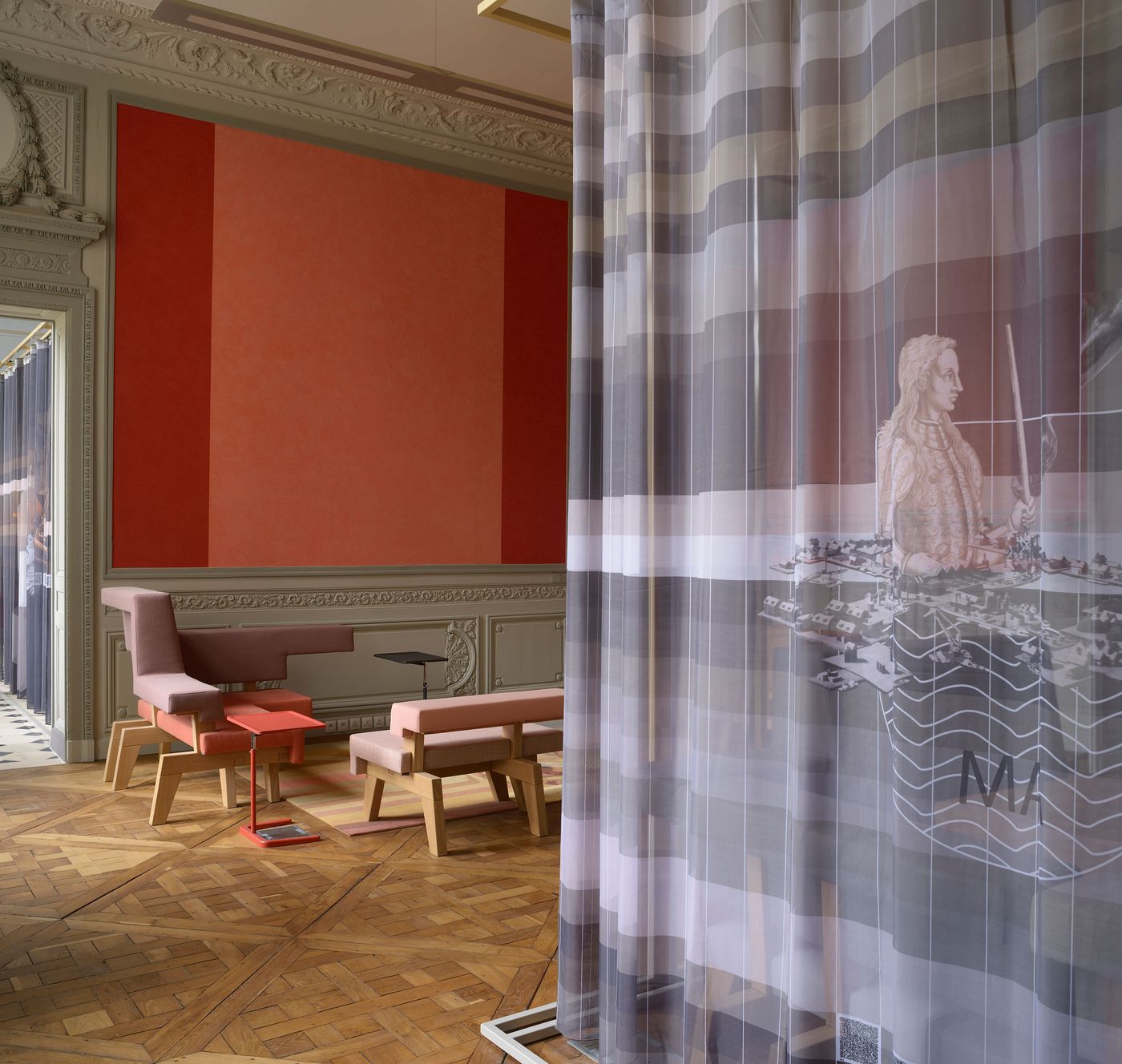
Studio Makkink & Bey Convert the 17th century Hôtel Dupanloup Into a University Research Centre
Words by Rooksana Hossenally
Location
Orléans, France
Studio Makkink & Bey Convert the 17th century Hôtel Dupanloup Into a University Research Centre
Words by Rooksana Hossenally
Orléans, France
Orléans, France
Location
Serving as a Bishops’ palace until 1905, the seventeenth-century Hôtel Dupanloup in Orléans (France), has undergone a complete overhaul by Dutch design studio Makkink & Bey. Now housing a super contemporary International Research Center of the University of Orléans.
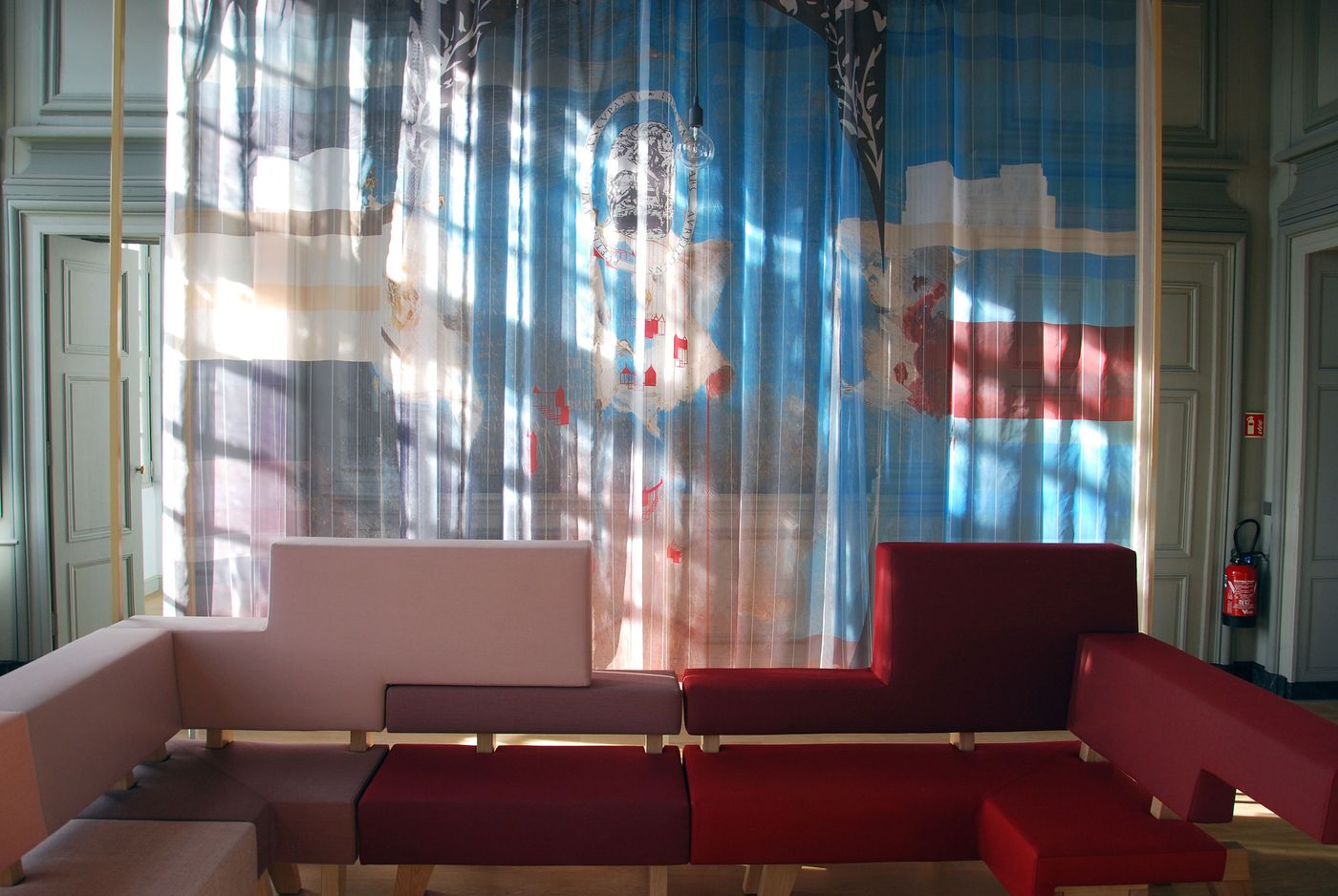
Hôtel Dupanloup, photo Studio Makkink & Bey.
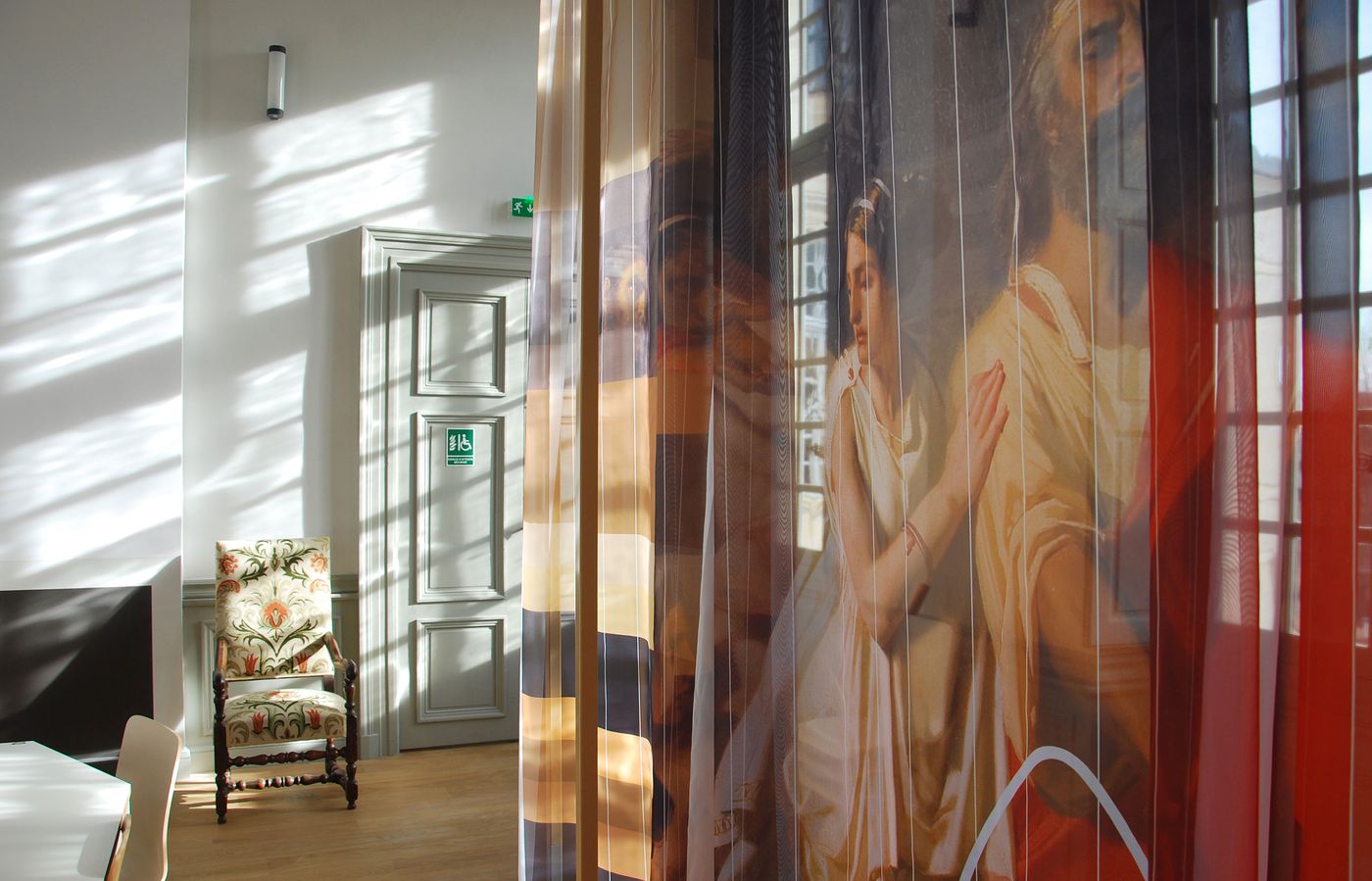
Hôtel Dupanloup, photo Studio Makkink & Bey.
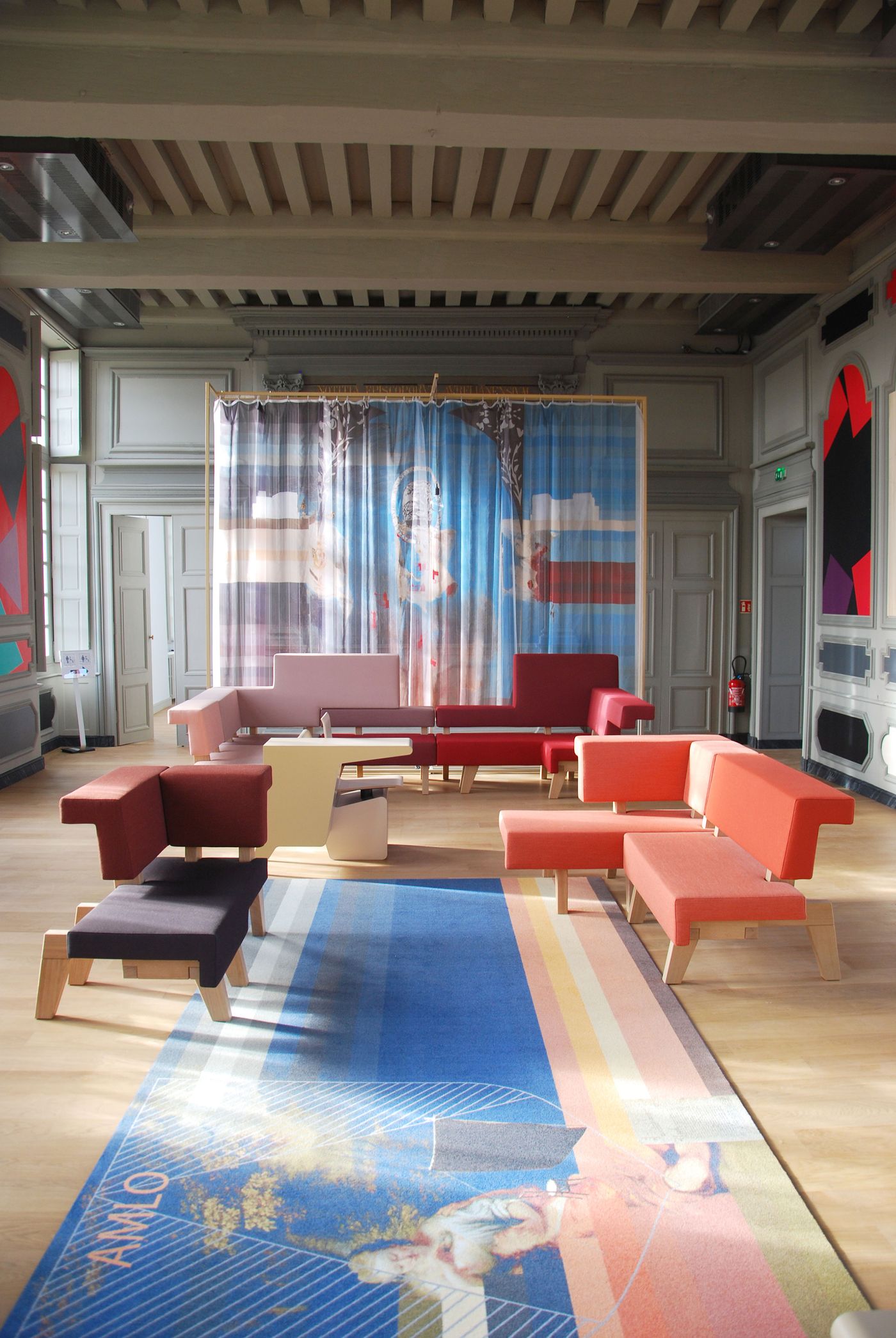
Hôtel Dupanloup, photo Studio Makkink & Bey.
Dupanloup was originally built in 1635 to 1665, and since, has had a great many functions, which is precisely what gives it its unique soul: first a Bishops’ palace during which time Napoleon is said to have stayed several times, then a city museum, followed by a military hospital during the First World War, and lastly as a public library in 1919. When the library was moved to another venue in 1994 however, most of the building fell into disrepair.
Sixteen years later, the local University of Orléans went on to acquire the listed architectural landmark and in January this year, it was inaugurated as the university’s international research centre. The new design however, will officially be revealed this month (September 2014) accompanied by a publication detailing the story behind the renovation and redesign.
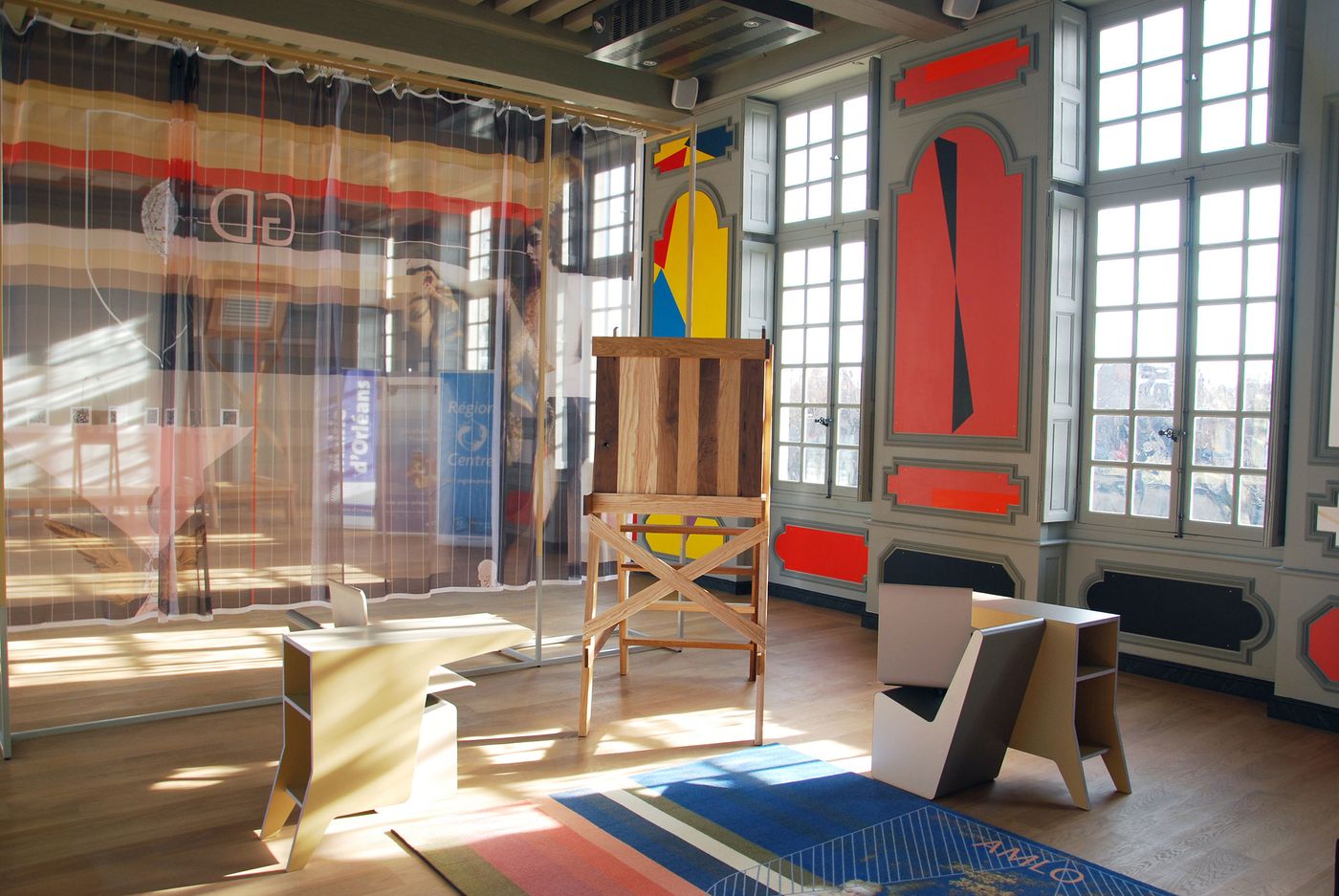
Hôtel Dupanloup, Studio Makkink & Bey, photo Ministère de la culture et de la communication / Drac Centre – François Lauginie.
Studio Makkink & Bey conceived an ensemble of three-dimensional collage style spaces for Dupanloup’s main hall and23 meeting rooms (formerly the Bishops’ bedrooms). Not only did this allow them to create clusters of space with an illusion of intimacy, it also meant that the building’s original interiors could be left completely intact. Instead of conducting any major work inside, the designers used subtle colour coding along with angular furniture, and rugs and curtains to divide the different spaces. As Sylvie Le Clech, Director of Cultural Affairs of the Centre Region says, the interiors are akin to 'A treasure hunt across centuries'.
The research centre now features a collection of contemporary furniture designed by studio Makkink & Bey, complete with its very own bespoke combined table and chair piece named after the building. Other usual suspects from the design studio include the #006 Side Seat and wing-backed Ear Chairs and Worksofas (produced by PROOFF) in new colour schemes which are mixed with antiques like a working longcase or ‘grandfather’ clock, and new takes on IKEA furniture designs by the students of the Ecole Supérieur d’Art et de Design d’Orléans, realised during a workshop lead by Rianne Makkink and Jurgen Bey.
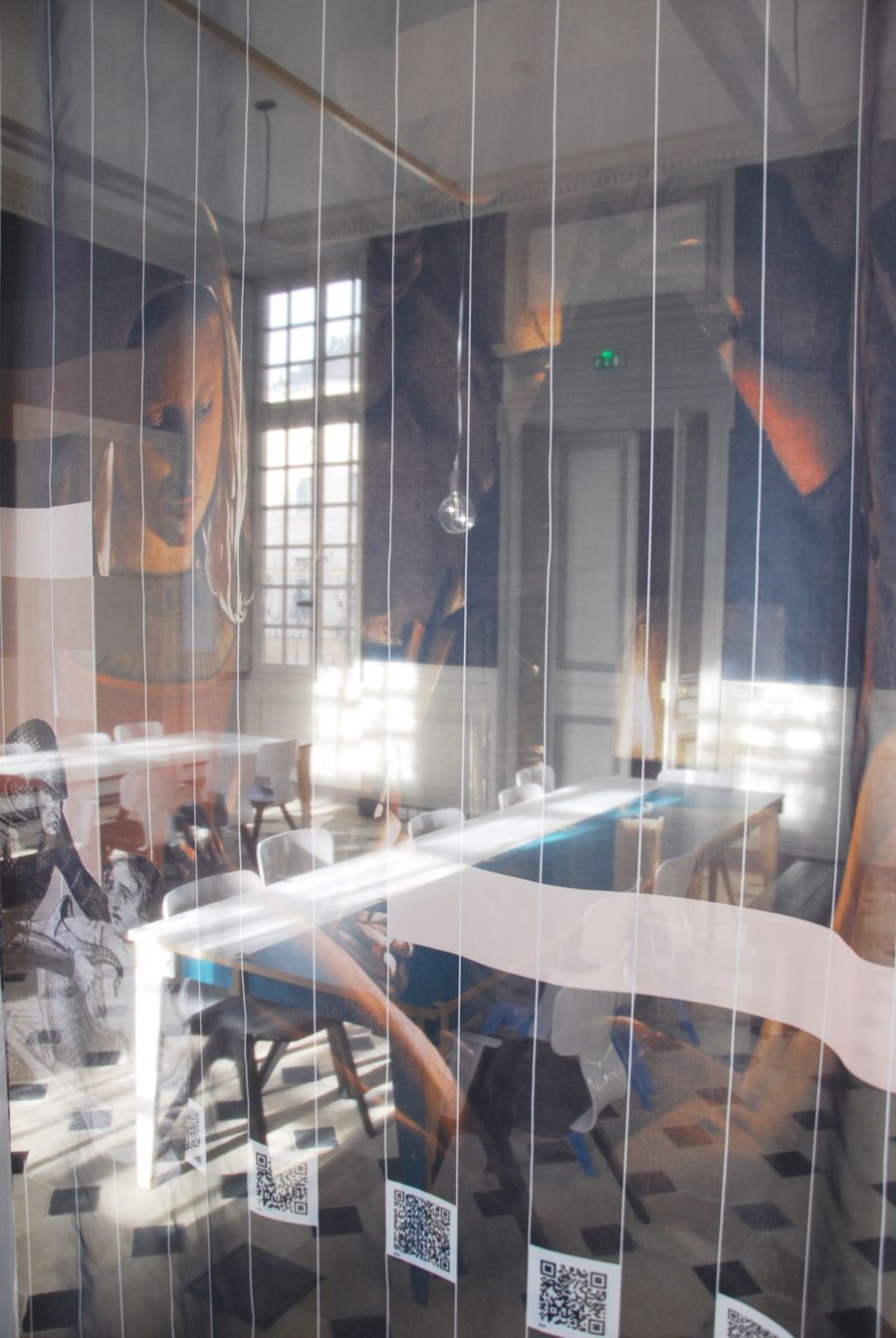
Hôtel Dupanloup, photo Studio Makkink & Bey.
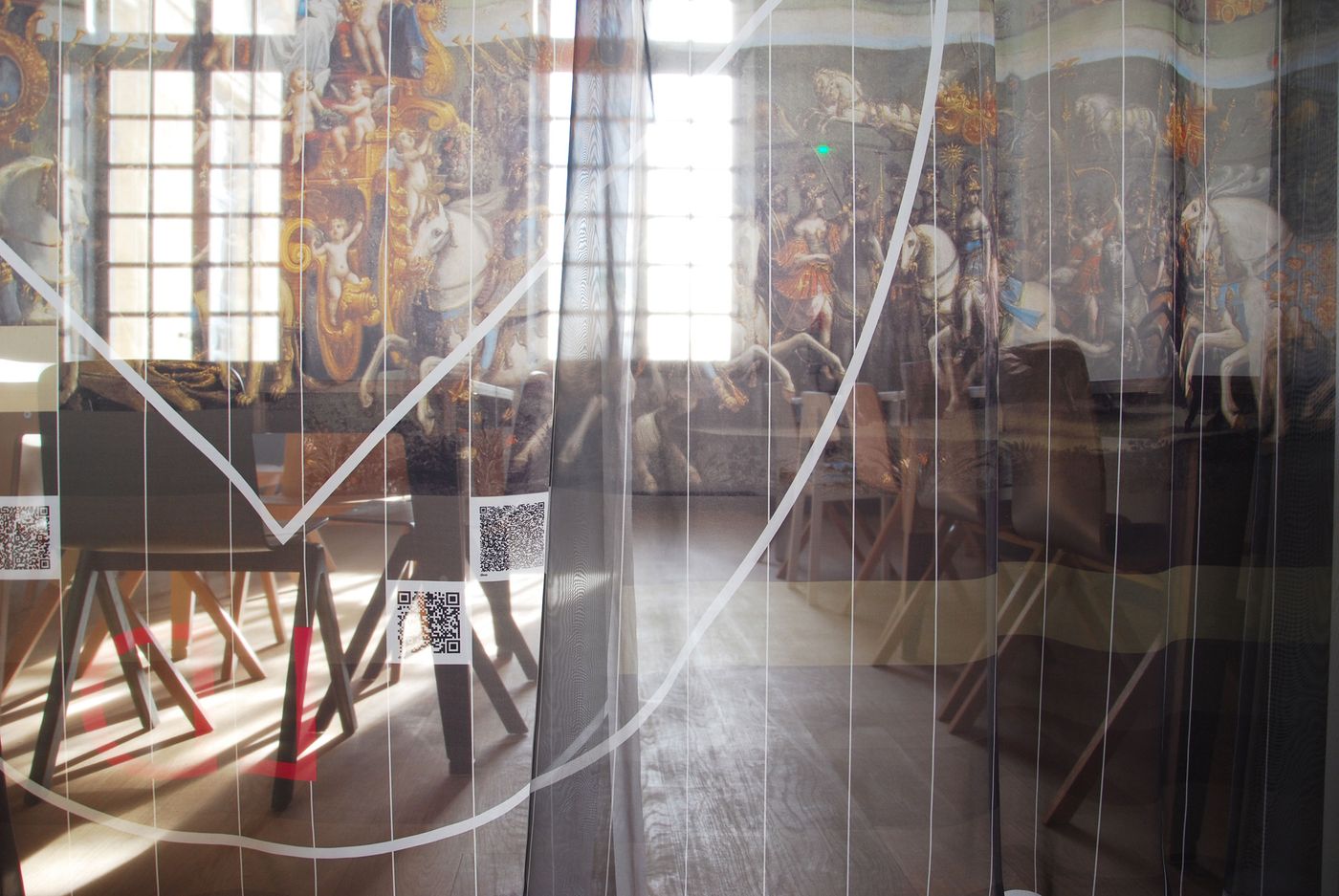
Hôtel Dupanloup, photo Studio Makkink & Bey.
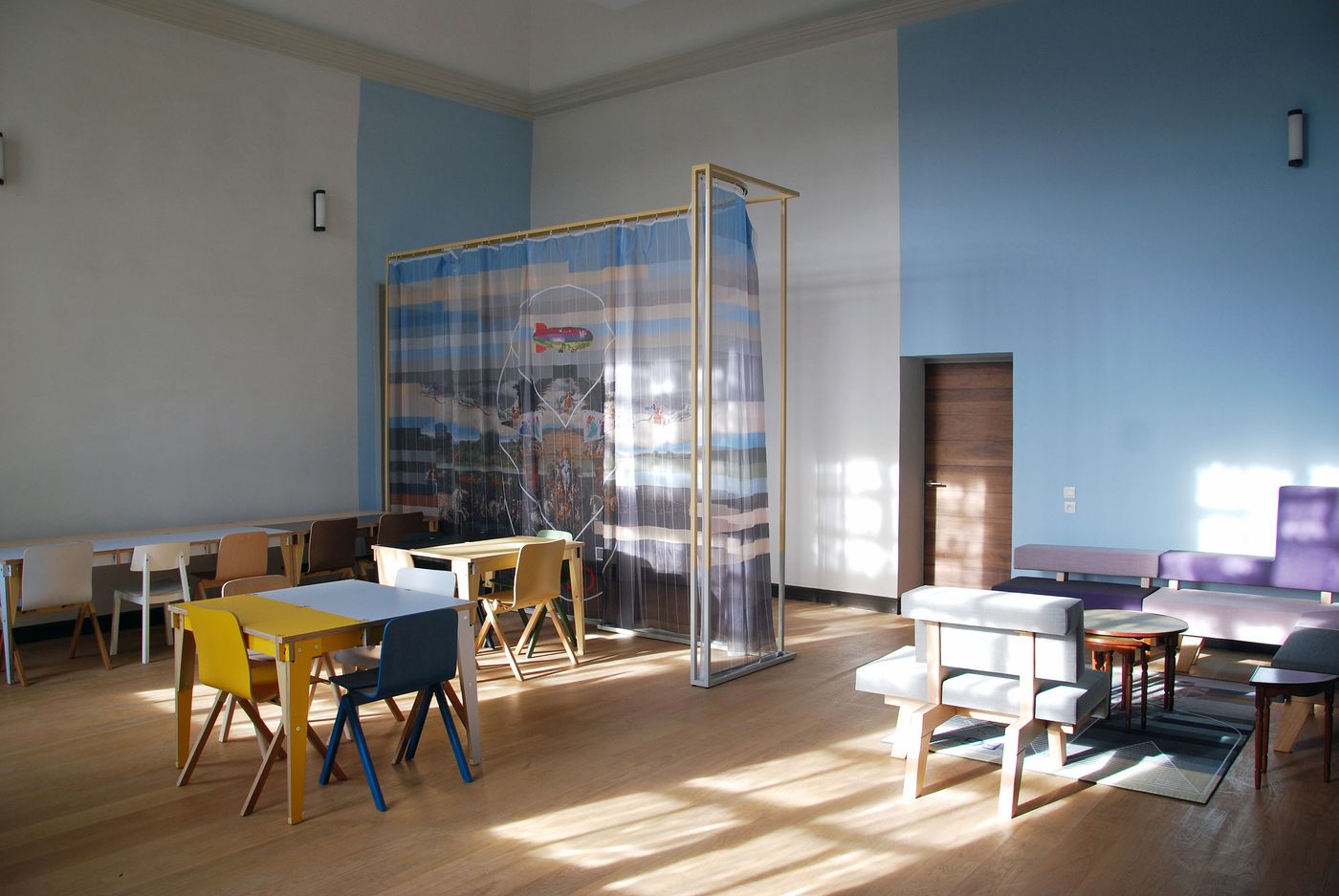
Hôtel Dupanloup, photo Studio Makkink & Bey.
For the designers, these ''room in a room interiors are intriguing spatial still lifes that portray several layers of time.'' Soft furnishings that echo details of the building’s original features like a fresco of a battle or an everyday scene of a mother and child printed on the veil curtains, serve to dress the lofty space as well as act as partitions to divide the rooms.The graphics printed on the curtains and carpets were taken from the archives of the local Musée des Beaux Arts, the FRAC Centre and the Maison de Jeanne d’Arc. The curtains recall the building’s history but also provide an ambivalent and whimsical separation of time and space. The result is very playful but remains adapted to the Hôtel Dupanloup’s modern-day purpose as the university research centre.
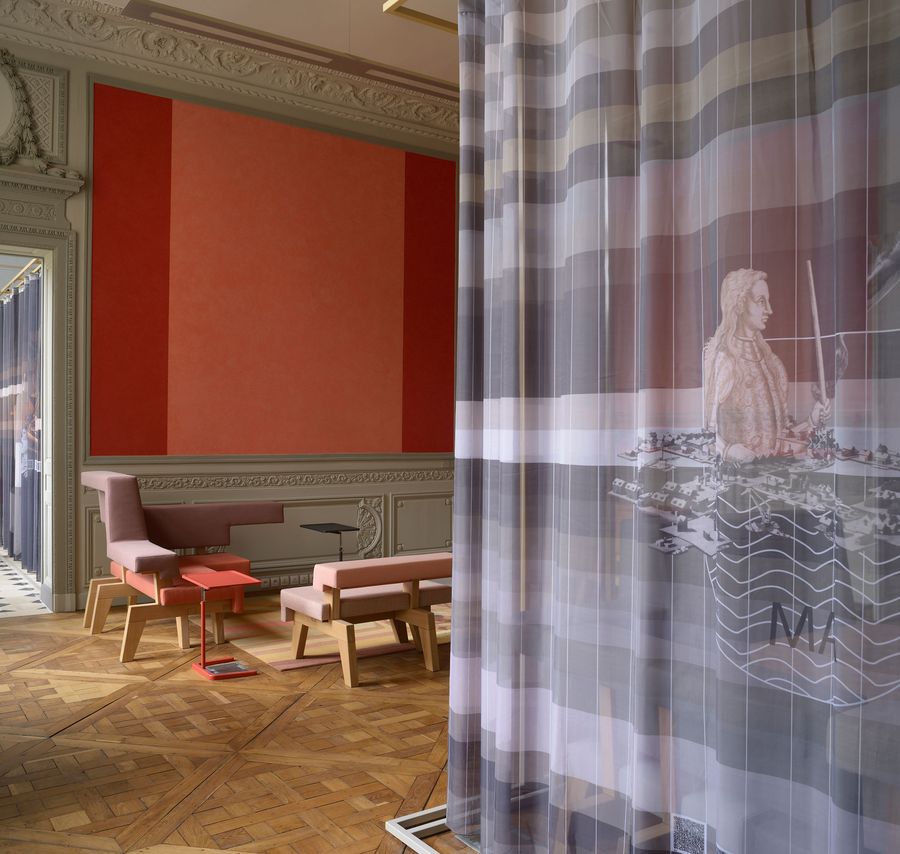
Hôtel Dupanloup, photo Studio Makkink & Bey.
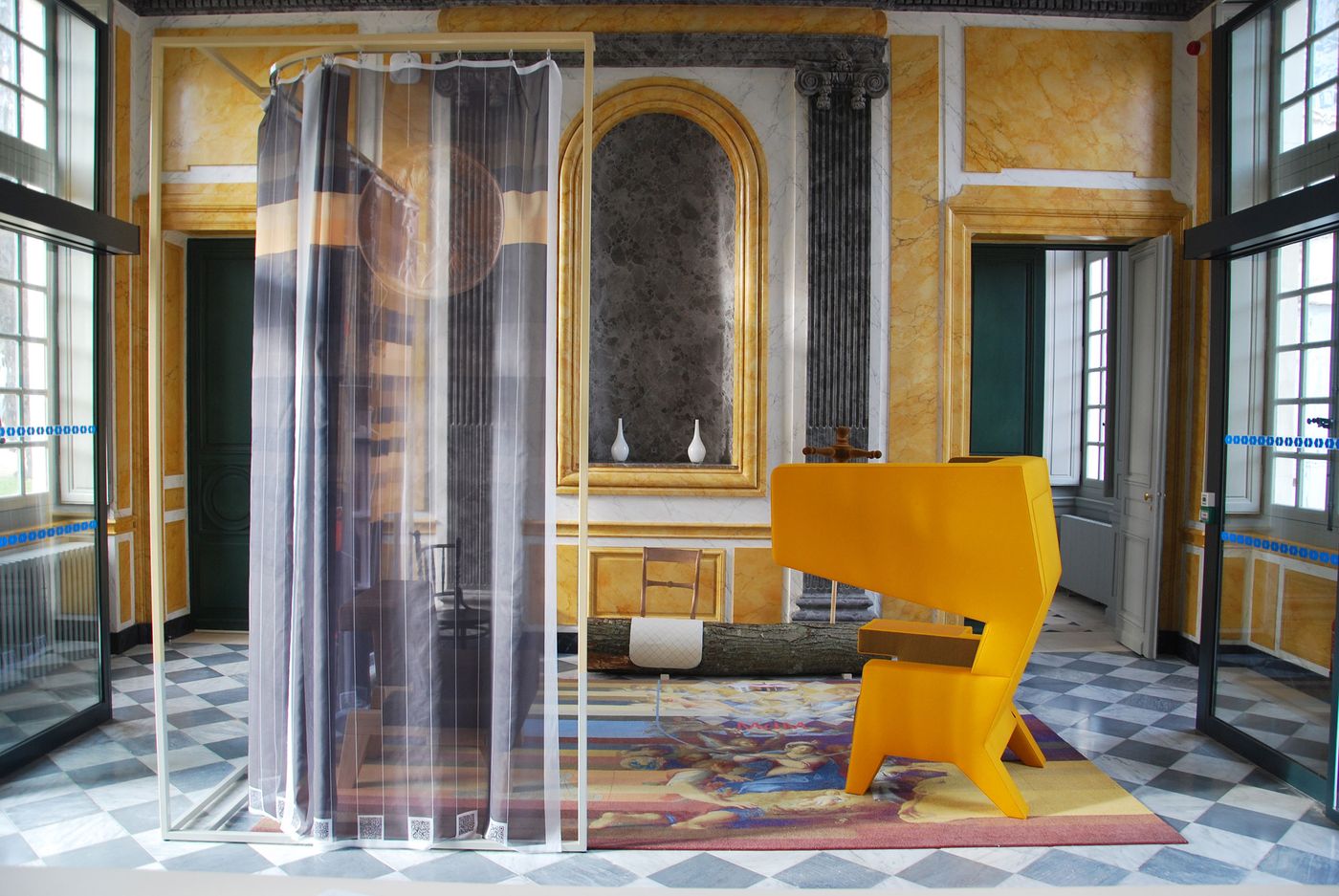
Hôtel Dupanloup, photo Studio Makkink & Bey.
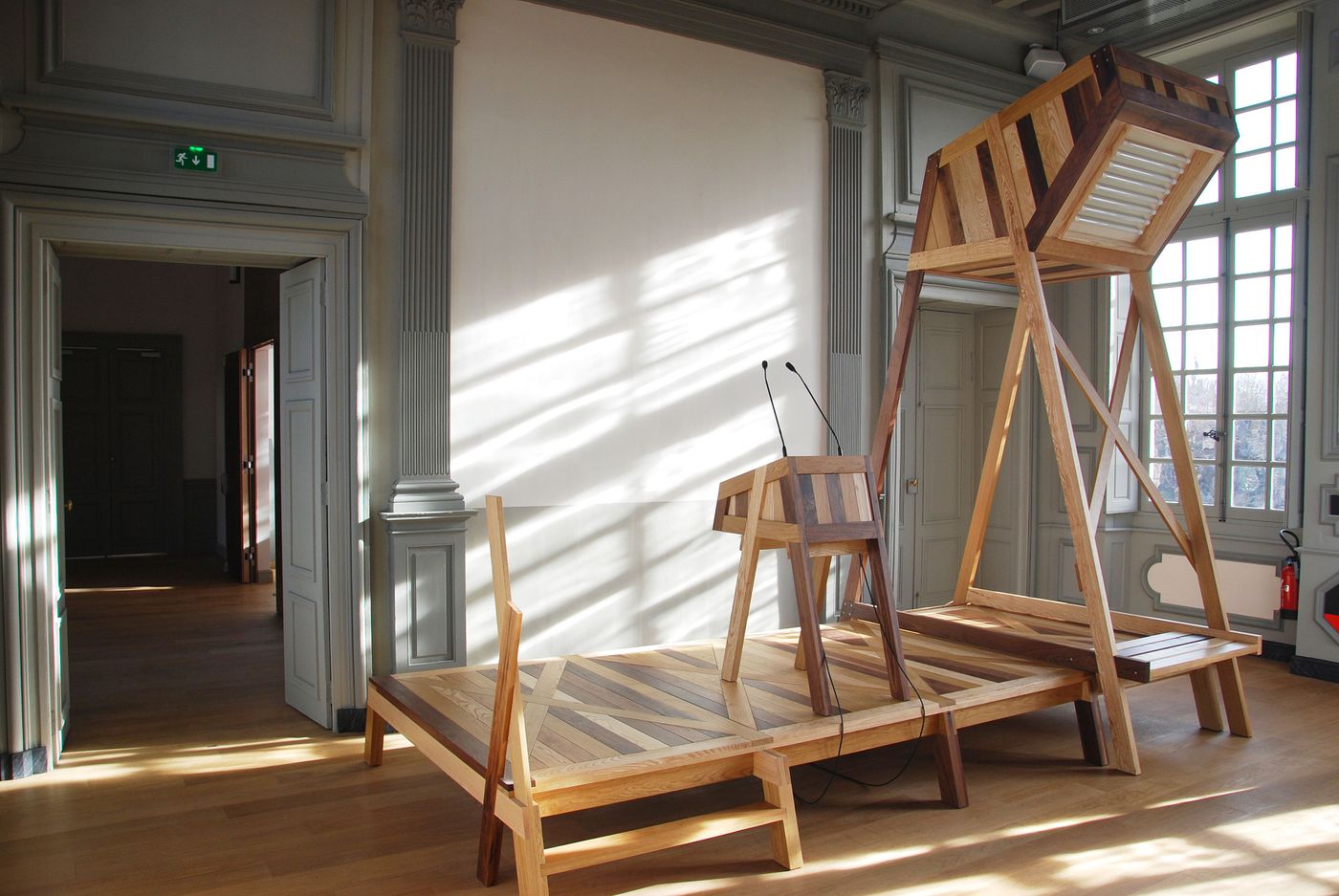
Hôtel Dupanloup, photo Studio Makkink & Bey.
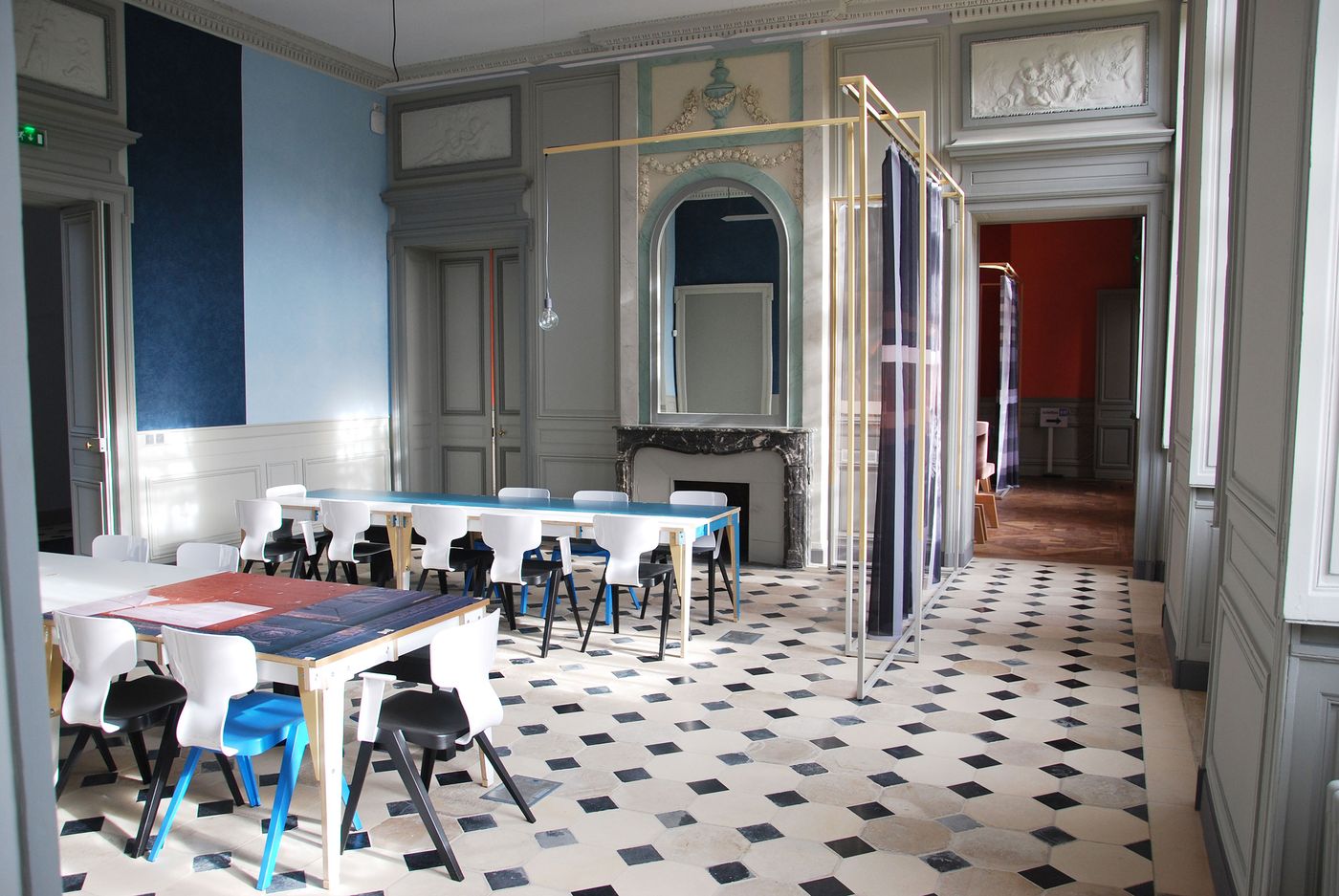
Hôtel Dupanloup, photo Studio Makkink & Bey.
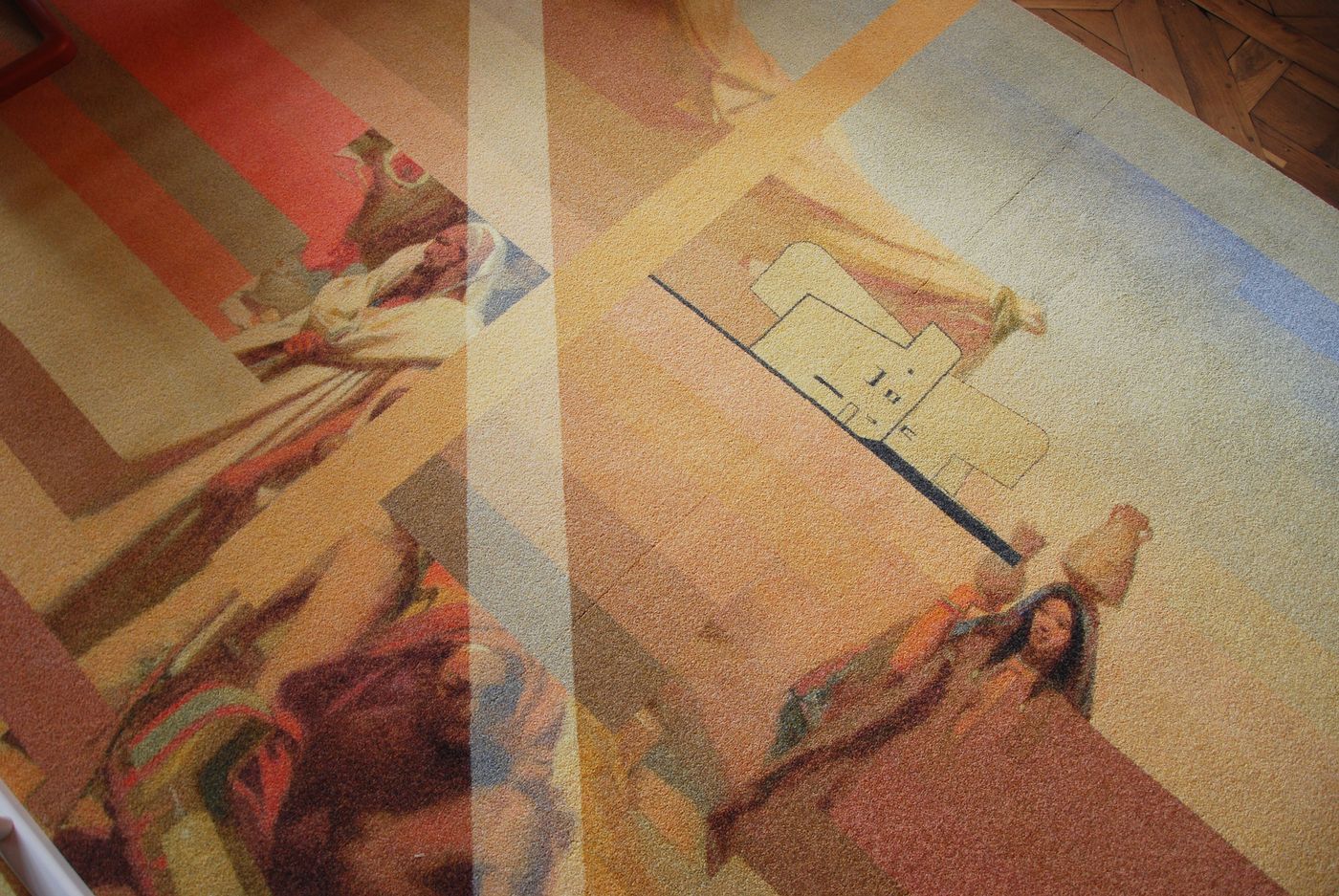
Hôtel Dupanloup, photo Studio Makkink & Bey.
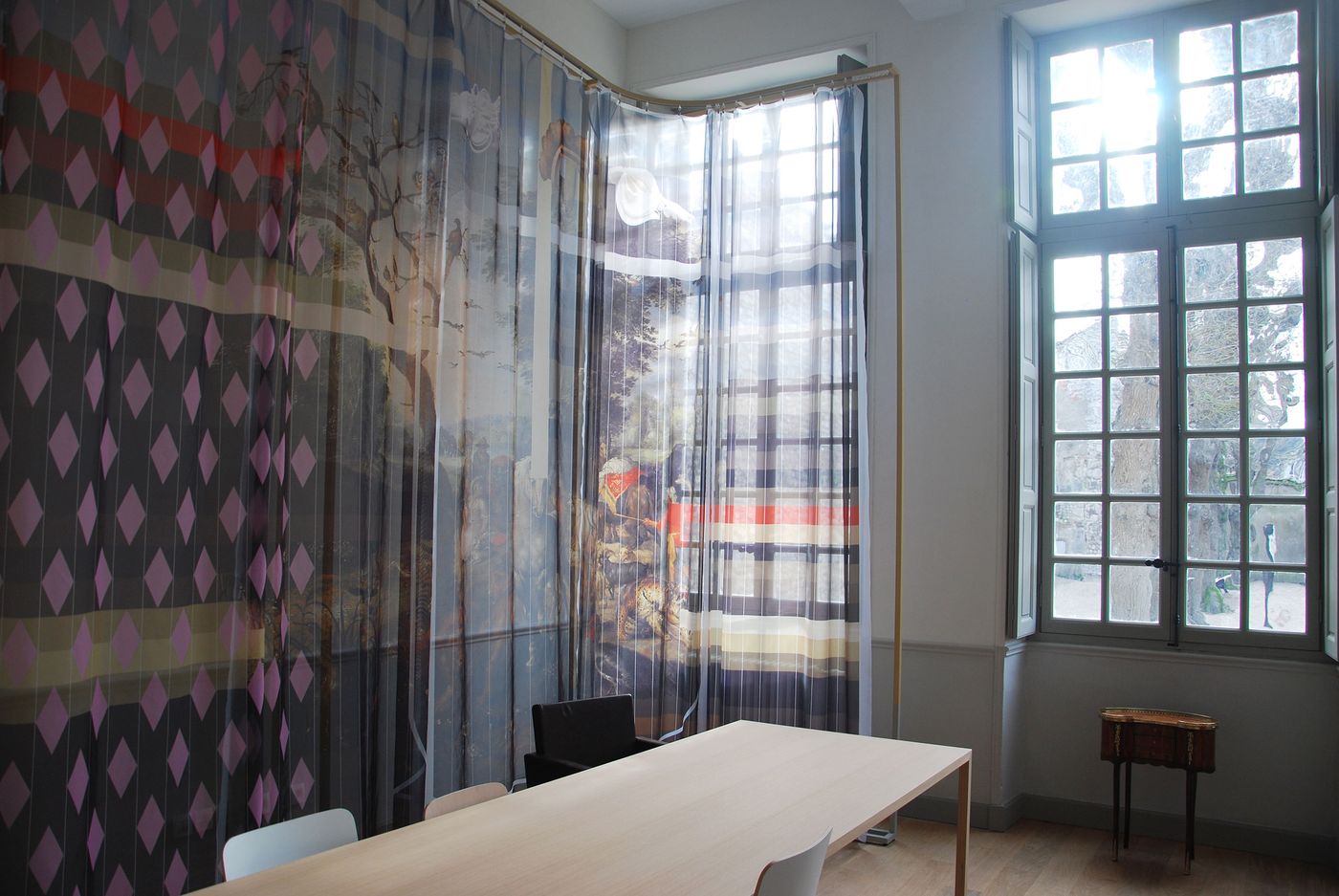
Hôtel Dupanloup, photo Studio Makkink & Bey.
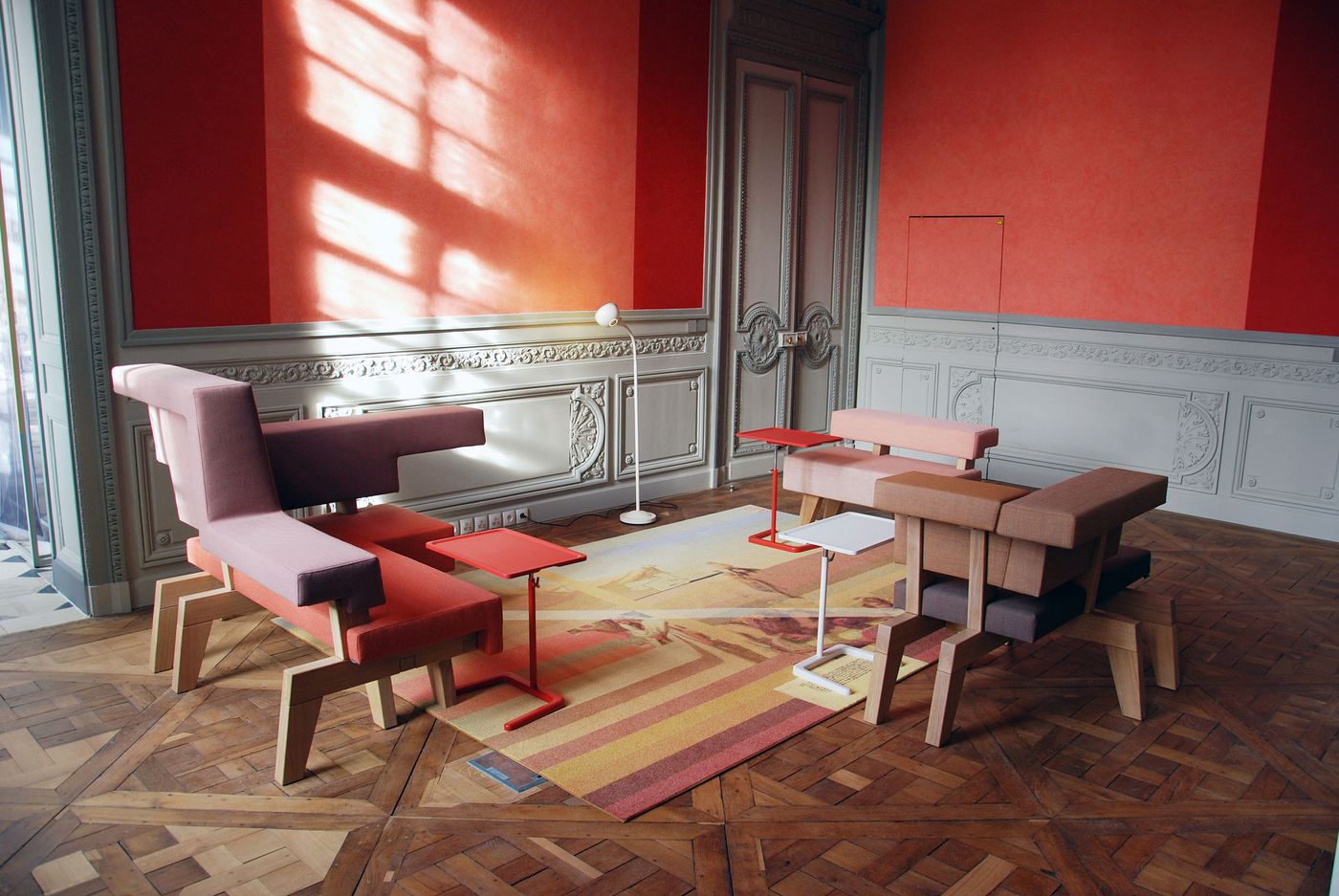
Hôtel Dupanloup, photo Studio Makkink & Bey.